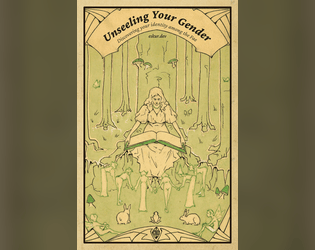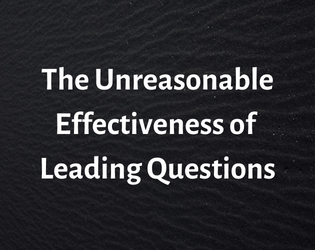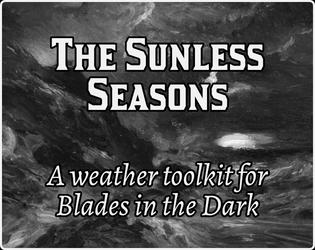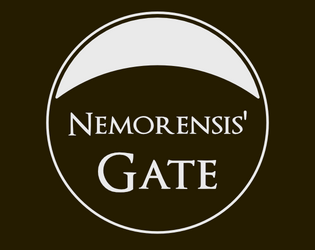The .docx should open with MS Word or Libreoffice. The .epub you can open with most e-reader software.
eskur
Creator of
Recent community posts
Thank you for writing this and putting it out there.
I’ve been dealing with similar thoughts and it’s comforting to know it isn’t just me. Too often I’ve held on to those echoes — from myself or others — that mostly just harm me. Feeling I had to ensure they never faded to silence, or I might fail at keeping up the mask. I’ll try to create some echoes that are helpful, instead.
I hope your journey is going well. <3
Witch has made a great survey of Downtime among various hacks, and considerations when changing it.
The bit about the push & pull between the fiction and mechanics for entanglements was my favorite part. I hadn’t thought about the usefulness of defined approaches to addressing entanglements before, though I still prefer open-ended ways to do so.
If you’re designed a game with downtime, or just want to improve your sessions this is well worth reading.
Violet brings up some great points here!
In particular, watching the other players to see which parts of the game they enjoy, and the importance of advocating for your own fun. Having a conversation about which parts of the game you want to focus on, and which you want to elide or ignore is a potent skill to have.
The other point I loved was about changing the fiction and removing rules, instead of creating new ones. If you create a fictional reason why the characters easily recover from harm after each score, you can ignore the recovery rules.
Once again Justin offers insightful, intentional advice applicable to Blades and many other games.
The premise of using revision not just in the moment, or as a safety tool, but as a storytelling device is excellent.
I also loved the questions you ask the reader. I’ll have to ponder them for my own projects!
Michael contributes a wealth of tips here that reinforce and augment how a good Blades game often works.
In particular, the sections on introducing contacts early, and harm promoting alternate approaches are ones I hadn’t seen explicitly brought up before. I’ll definitely incorporate them into my own sessions.
Others that I also wholeheartedly agree with are:
- Don’t keep secrets.
- State your intentions.
- Letting the players narrate their success.
- Picking the crew first AND allowing characters to play as narrative foils to each other.











